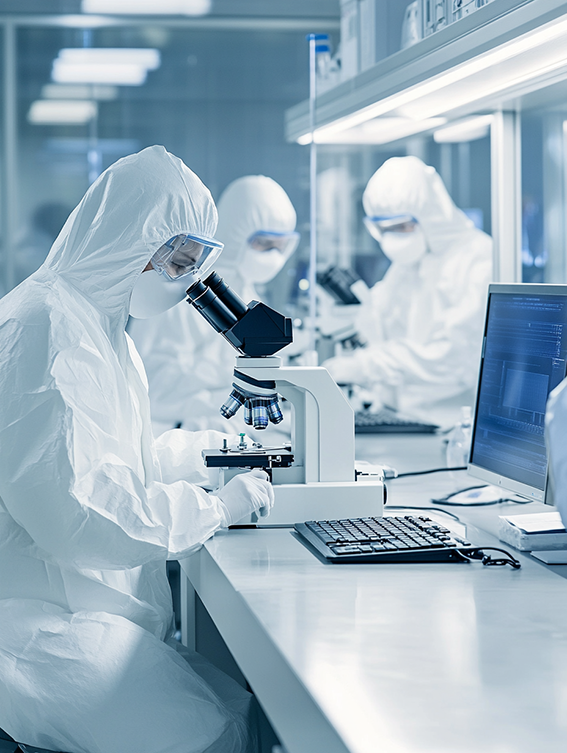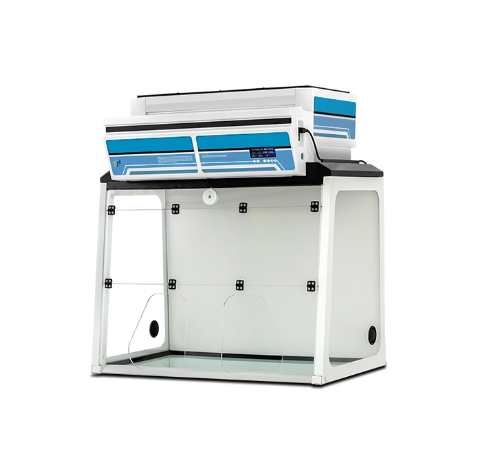
Precision-Controlled Laboratory Incubators for Every Research Need
CO₂, BOD, Biochemical & More — Reliable Results, Every Time
1. What is a Laboratory Incubator?
A laboratory incubator is a temperature-controlled chamber designed to create a stable environment for the growth, preservation, and testing of biological samples. Commonly used in microbiology, cell biology, pharmaceuticals, and food safety labs, these incubators ensure consistent conditions for reliable experimental outcomes. Key controllable parameters include temperature, humidity, CO₂ concentration, and oxygen levels, depending on the model.
Modern incubators play a vital role in scientific research, diagnostics, and industrial production where accurate environmental control is crucial.
2. General Purpose Incubators & How to Choose the Right One ?
Laboratory incubators are available in a wide variety of configurations tailored to different experimental needs. Understanding your application is the first step in choosing the right incubator model.
Key Selection Factors:
Temperature Requirements:
Choose between heated, refrigerated, or ambient models based on the thermal profile of your samples.
Gas Control:
For mammalian cell culture, a CO₂ incubator is required. Anaerobic research demands oxygen-free environments.
Sample Volume & Format:
Benchtop models are ideal for small sample sizes or limited lab space. Larger units accommodate high-throughput needs.
Mechanical Mixing:
For liquid cultures, shaking incubators offer integrated orbital or reciprocal motion.
Common Use-Based Guidance:
How to Choose the Right Laboratory Incubator?
2. Determine Gas Requirements
- CO₂ Control: Required for mammalian cell culture to maintain pH balance.
- Anaerobic Conditions: Necessary for culturing oxygen-sensitive organisms.
- Ambient Air: Adequate for most biochemical and microbial studies.
3. Consider Sample Size and Workflow
- Benchtop Models: Ideal for small labs and mobile units.
- Stackable Units: For labs requiring multiple independent chambers.
- Large-Capacity Floor Models: Suitable for industrial-scale experiments or batch testing.
4. Evaluate Functional Needs
- Shaking Mechanism: Needed for suspension cultures and fermentation.
- Humidity Control: Crucial for preventing evaporation in open vessels.
- Programmable Controls: Allow complex temperature and timing schedules.
5. Regulatory & Validation Considerations
- Ensure models are compliant with ISO, CE, and GMP where required.
- Look for incubators offering IQ/OQ documentation for audit readiness.
6. Additional Practical Factors
- Noise levels and energy efficiency
- Ease of cleaning and maintenance
- After-sales support and warranty
Not sure which model fits your lab's needs?
Common Laboratory Incubator Applications & Workflows
3. Laboratory Incubator Categories
We offer a comprehensive range of incubators, each engineered for specific research demands.
Biochemical Incubators
[View Biochemical Incubators →]
Use Cases: - Microbial strain development - Fermentation studies - Stability and enzyme assays
CO₂ Incubators
Use Cases: - Cell culture - Cancer and stem cell research - Tissue engineering
Refrigerated Incubators
[View Refrigerated Incubators →]
Use Cases: - Shelf-life testing - Cold-tolerant organism incubation - Soil and plant studies
BOD Incubators
Provide consistent 20°C conditions for BOD (Biochemical Oxygen Demand) analysis in water quality labs.
Use Cases: - Effluent analysis - Aquatic ecosystem testing - Regulatory compliance testing
Shaking Incubators / Incubator Shakers
Use Cases: - Protein expression - Fermentation studies - Suspension culture
Hybrid / Multi-Function Incubators
Multi-purpose systems offering heating, cooling, humidity, CO₂, and shaking functions in one platform.
Use Cases: - Complex experimental workflows - Labs with diverse testing needs - Education & training
Anaerobic Incubators
Use Cases: - Anaerobic bacteria research - Gut microbiota cultivation - Clinical pathogen isolation
Portable / Benchtop Incubators
Compact and mobile units for limited-space labs, mobile testing vans, or educational purposes.
Use Cases: - Mobile fieldwork - Point-of-care labs - University teaching labs
4. Application Workflows & Compatible Equipment

5. FAQ
• Most models offer a range from RT+5°C to 60°C. For refrigerated incubators, the range can extend from 0°C down to -10°C. Customized models are available upon request.
6. Why Our Incubators Stand Out
Built for Scientific Reliability
Our incubators are purpose-built for laboratory professionals who demand unwavering consistency and precision. Whether you're running long-term cell cultures or time-sensitive microbial tests, each unit delivers stable and reproducible conditions across experiments.
Precision Control, Every Time
Advanced PID controllers enable tight regulation of temperature, CO₂ concentration, and humidity. This ensures optimal growth environments for sensitive cultures and reduces experimental variability in high-stakes research.
Energy-Efficient Performance
Equipped with intelligent energy-saving modes and efficient insulation, our incubators help reduce operational costs without compromising performance—ideal for 24/7 lab environments.
Flexible Form Factors
Choose from stackable, benchtop, or floor-standing models to suit your lab layout and space constraints. Adjustable shelving and modular options support a wide range of experimental setups.
Certified to Global Standards
All models are CE certified and ISO compliant, ensuring safety, performance, and regulatory compatibility across global research, clinical, and industrial applications.
Responsive Online Technical Support
Our expert support team is available online to assist with installation, calibration, and troubleshooting. With fast response times and detailed guidance, we ensure your lab operations remain smooth—no matter where you're located.
7. Innovation & Industry Trends
• Compact Versatility: Growing demand for portable and hybrid units in modular labs
• Sustainability: Eco-conscious features such as insulation upgrades and low-consumption compressors
• Multifunction Integration: Combined shaking, cooling, humidity, and gas control in a single system
• Anaerobic Research Boom: Driven by human microbiome, food fermentation, and novel therapeutics

Recent Posts
-
 In the world of molecular biology and biotechnology, maintaining a sterile environment is crucial for obtaining accurate results in research and diagnostics. This is where a PCR workstation becomes indispensable. But what exactly is a PCR workstation, and why is it so important in the lab setting? I
In the world of molecular biology and biotechnology, maintaining a sterile environment is crucial for obtaining accurate results in research and diagnostics. This is where a PCR workstation becomes indispensable. But what exactly is a PCR workstation, and why is it so important in the lab setting? I -
 Laboratory shakers are essential instruments widely used in various fields of scientific research due to their ability to provide consistent and controlled agitation. These devices play a crucial role in important laboratory processes such as sample mixing, the dissolution of substances, and facilitating chemical or biological reactions.
Laboratory shakers are essential instruments widely used in various fields of scientific research due to their ability to provide consistent and controlled agitation. These devices play a crucial role in important laboratory processes such as sample mixing, the dissolution of substances, and facilitating chemical or biological reactions.













